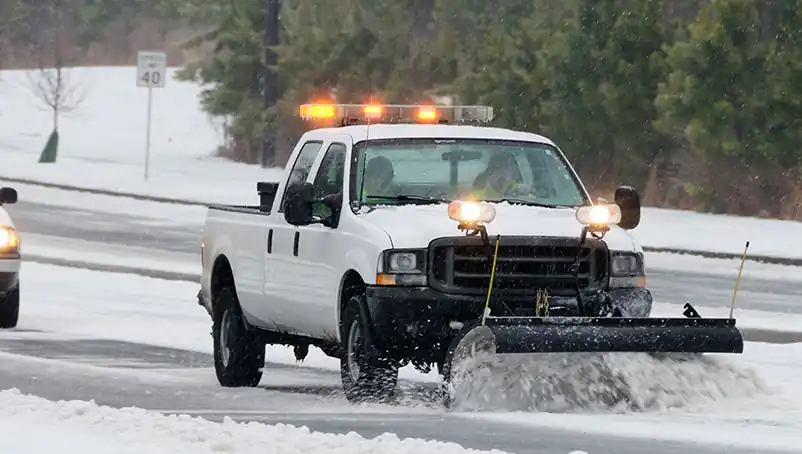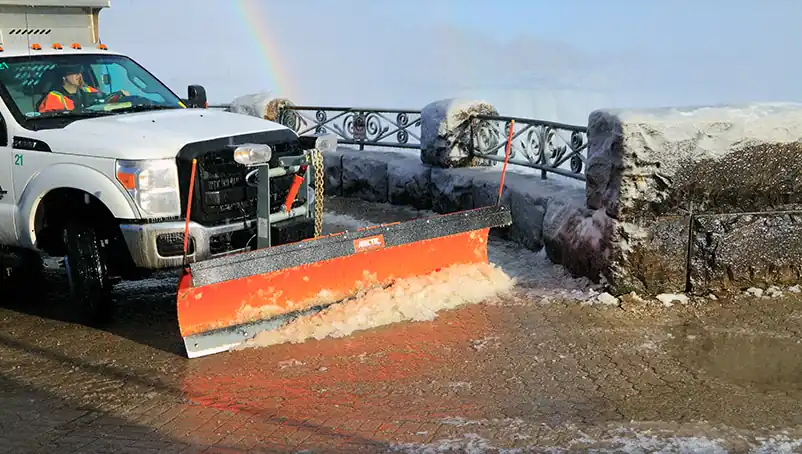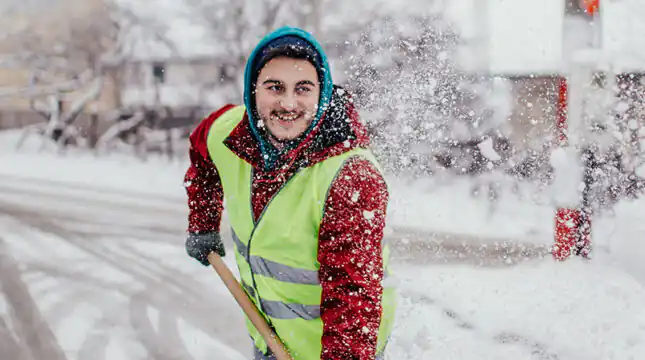Commercial vs. residential snow removal contracts
Commercial and residential snow removal contracts can offer similar services. But, there are differences in payment structure and the tools for the job.
Commercial snow plowing services
These contracts include apartment buildings, large parking lots, restaurants or grocery stores. Commercial projects have more liability. They’re liable for people on premises and nearby vehicle traffic. And to accommodate the larger space, your business may also need more trucks, loaders and staffing, which equals a higher cost.
A seasonal contract may be the best fit for commercial snow removal. Since seasonal contracts are typically signed for a few years, both parties will likely benefit over time based on average overall snowfall.
Residential snow removal services
Typically, residential snow removal contracts include a homeowner’s property. These contracts tend to be more flexible than commercial contracts.
Residential contracts could be seasonal, per push or per event. A seasonal contract would ensure that you’re paid even if there are only a couple of snowstorms. A per-push contract means they pay each time you visit, which may work best in low snowfall. Per-event contracts tend to work best with low volume but frequent snowfall.
How to write a snow removal contract
Comprehensive snow removal or snow plowing contracts include details such as:
- Work performance and standards
- Insurance coverage
- Payment structure
Work performance and standards
The contract establishes the scope of work and the overall performance of your snow removal business. It tells clients how you will handle their needs.
It can also include specifics on sanding, salting and removing snow. The contract could also cover the type of equipment you’ll use and the size of the crew.
Your response times to snow removal should be consistent for each snowstorm and based on your contract terms.
Insurance coverage
Snow removal businesses are often required to have insurance due to the risk of injury and property damage.
For example, if you damage a client’s mailbox while shoveling snow, general liability insurance could help pay for repair or replacement.
Reliable business insurance can build trust with your client and help protect everyone in your partnership. Document your coverage in all of your contracts to reassure clients and prove your professionalism.
Payment structure
Make it clear in your contract how you charge, when you bill and payment terms for delayed payments.
How NEXT helps protect your snow plowing business
Snow plowing insurance coverage can help protect you year-round. And NEXT makes it simple to design the insurance coverage you need.
Choose from general liability, workers’ compensation, professional liability, tools & equipment, commercial auto and commercial property to get the coverage you need at a price you can afford.
Review your policy options, get a quote and purchase coverage — all in less than 10 minutes. Your certificate of insurance is available immediately after you pay your premium.
If you have questions, our licensed, U.S.-based insurance professionals are ready to help.
Get started with a free quote from NEXT.







